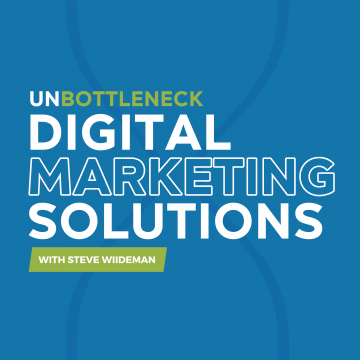A long-standing, but rarely discussed, in internet marketing is choosing the best permalink structure for higher overall placement in search results. I myself have studied taxonomy and have had outstanding results with matching my website directory structure with my URL structure, a common practice as you’ll learn below. Over the last couple of years, use of mod_rewrite and other services to modify URL structure has become quite popular. However, does this help or hurt search engine optimization efforts?
We surveyed over 100 SEO experts and SEO-savvy Mechanical Turk workers to come to a consensus on top criteria, such as using a www prefix, a file extension, forcing a trailing slash, capitalization, and directory/folders use in URLs. The result leads us to believe that the best structure for permalinks may be as shown below. Read our commentary and do some testing of your own before you make a final decision.
 www.yourwebsite.com/category/keyword
www.yourwebsite.com/category/keyword
Why Mechanical Turk Workers?
We chose to use Mechanic Turk for 25% of our survey respondents. Despite the stereotype as sweatshop labor with little knowledge in technology, we found the demographic of Turk workers to actually be perfect, with most workers holding bachelor’s degrees and previously providing very insightful opinions on SEO-related topics.
Criteria Analyzed
Permalink Structure (Directory, Folder, & Taxonomy)
Over the years, we have learned from the thought leaders in search engine optimization, such as Rand Fishkin, Bruce Clay, and Lee Odden to use an intuitive, human-readable, category-based directory systems that match the hierarchy of a website’s taxonomy, to silo content, and to keep URLs short and simple. However, some might argue that using directories may push keywords used in the page name beyond what search engines would display in search results, making a URL and its respective listing less relevant to the searcher.
Matt Cutts, from the Google Search Quality Team, hints of importance in keywords being closer to the root domain, but says we should not obsess over keyword placement.
We asked our experts what they believed the best practice is for using directories in URL structure, to ignore for a moment extensions, prefixes, and capitalization. Here are the results:
| URL Structure | Votes | % Votes |
|
/category/keyword/ |
53 | 48% |
|
/keyword/ |
22 | 20% |
|
/keyword-with-modifier/ |
22 | 20% |
|
/keyword/category/ |
8 | 7% |
|
/keyword-category/ |
5 | 5% |
Another important argument for those of us who love WordPress like politicians love oil (oops) is the potential danger of capitalization with regards to individual rewrite rules for each page. A practice that has been know to result in decreased performance over time. But we’ll save that for another study.
File Extensions in URLs
Matt Cutts also discussed file extensions in permalinks, stating that search engines prefer file extensions to help differential document types. Well, those surveyed about file extensions don’t agree. In fact, from a technology perspective, not having a file extension apparently provides a technology team with more flexibility in changing platforms and programming languages (.asp, .php, .html, etc). It’s also said to have helped paid search campaigns that use the same landing page for natural SEO; reducing the Display URL by 4-5 characters so that space can be used more productively.
Check out the results below:
| File Extension | Votes | % Votes |
|
No file extension is better for SEO |
31 | 28% |
|
On the fence |
28 | 25% |
|
No opinion |
27 | 25% |
|
Having a file extension is better for SEO |
24 | 22% |
Despite the community feedback, Matt Cutts says it may actually be better to include a file extension to help web crawlers understand the document type:
Using a WWW-Prefix
Websites such as Bit.ly and About.me may be two of the few exceptions where it’s not advantageous to include a WWW-prefix within a permalink structure. Despite the fact that Google, now bearing a 64.42% market share in search, allows webmasters to set a preference of how they would prefer Google display website URLs, there are still 35.58% of the search industry that don’t yet offer such an option. It’s possible that our survey results were influenced in part from a general feeling that users still use WWW in direct address bar visits, searches, and in how they link and/or mention a website.
Who cares? When Larry Page and the founders of Google invented PageRank, along with it came the passing of votes (or “Link Juice” as we call it today) and resulting duplicate content issues. Having two versions of the same page may create ambiguity and confusion as to which version a search engine should return in the results, particularly when users link to both variations. To correct this, the best practice is to create a 301 redirect from the non-prefix version, as well as specify the preference in Google Search Console.
The overwhelming opinion still remains using the WWW prefix, as you can see from the survey results.
| WWW Prefix | Votes | % Votes |
|
Having a forced WWW prefix is better for SEO |
51 | 46% |
|
Having a forced no-WWW prefix is better for SEO |
21 | 19% |
|
No opinion |
19 | 17% |
|
On the fence |
19 | 17% |
Trailing Slash in Permalink
Similar to the problematic duplicate content scenario of having a WWW prefix, using a trailing slash at the end of category or extension-less page is another common topic of conversation. Interestingly enough, the majority of respondents chose the best permalink structure of not having a trailing slash.
Two main explanations for this choice may include:
- Not having to create 301 redirects when using the same URL for Paid Search (PPC) efforts
- Transferability of content between platforms, such as all those folks that are still migrating off of complex Windows servers to possibly more flexible Linux environments. This typically means moving .aspx files to .php, or in this case, .whatever to no-dot. Sorry, blatant bias from a LAMP guy – it’s my article and it’s good to be the king.
| Trailing Slash | Votes | % Votes |
|
Having a forced no-trailing slash is better for SEO |
43 | 39% |
|
Having a forced trailing slash is better for SEO |
35 | 32% |
|
On the fence |
17 | 15% |
|
No opinion |
15 | 14% |
Permalink Capitalization
Another somewhat controversial subject in the SEO community is the use of capitalization in permalinks. Those who have ran their own tests really know which is better for conversion and click-through rate on their individual websites. However, to create a rule of thumb for those of us having to choose a permalink structure out the gate, our survey participants tend to swear by one best practice: using lowercase in category and page names.
Those who voted for using capitalization, preferred the use of title case rather than all caps, capitalizing the first letter of each word; we won’t talk about those folks who haven’t heard the buzz about capitalization causing confusion with users.
The preferred method is indisputably all lowercase.
| Capitalization in URL’s | Votes | % Votes |
|
Lowercase: /keyword |
83 | 75% |
|
Title Case: /Keyword |
23 | 21% |
|
All Caps: /KEYWORD |
4 | 4% |
Additional Comments & Recognition
The Wizard of Moz, as it were, made a really good point on my Quora extension of this survey, stating:

I like a few things in a URL:
- Descriptive – when you see the URL written, you can instantly know what’s going to be on the page
- Smart Keyword Usage – it says what it targets, but in a user friendly, simple, easy way that doesn’t sound stuffed or spammy
- As Short as Possible – given the above
- No Unnecessary Content – dynamic parameters, extra numbers, extra folders, etc.- if they don’t better describe the content or make it longer unnecessarily, cut it out.
More info/details here: 15 SEO Best Practices for Structuring URLs
Darren Shaw, a local SEO expert from White Spark, says “With regard to the prefix/no-prefix question, I really don’t think this is a ranking factor. No benefit to having it, or, not having it.”
Cayley Vos, owner of Netpaths, says “This is for SEO only. A www subdomain is better for PPC but does not affect natural rankings. The structure of the entire URL can have dramatic impact on clickthrough rates In SERPS – create URLs that people can click on.”
Duncan Johnson of Yodelay stated, “I have checked “no opinion” in a few of the questions above, not because I have no opinion, but because I genuinely don’t think it makes any difference. My opinion is that Google will bundle all the variant of urls structure pretty much into one small group of of minor variances. There are far more influential factors that Google gives more weighting to than URL structure, such as Twitter Tweets of your page or Facebook Likes, LinkedIn Shares, and of course the good old Inbound Links. Because of the multitude of factors and their variants, I would be very surprised if anyone has sufficient evidence or factual proof of the difference.”
Other comments by anonymous participants included:
Forced www or non-www has little impact on SEO from a rankings standpoint, but can change user perception, as can file extensions (such as lesser used .js and .cfm files; unfamiliarity may be confusing).
Capitalization helps with user readability.
Trailing slashes can disable some server-side includes. Also some servers do not recognize the difference between upper and lower case. You have probably heard the saying that 10% of the fishermen catch 90% of the fish. I am sure that the same is true in SEO. Based upon that, a smart SEO should do the opposite of what a survey finds.
About the Author
 Steve Wiideman calls himself a Creative Search Strategist, specializing in technical SEO enhanced with creative content and link bait. Steve currently works as a consultant to well-known brands, trainer to webmasters, SEO agencies and strategist to social media firms.
Steve Wiideman calls himself a Creative Search Strategist, specializing in technical SEO enhanced with creative content and link bait. Steve currently works as a consultant to well-known brands, trainer to webmasters, SEO agencies and strategist to social media firms.
Wiideman recently completed a study on Google Autocomplete and is currently working on an SEO strategy publication he hopes will be in stores by the end of summer 2011.
Additional References & Resources:
I know you have better things to do with your time than read a study on URLs; thanks for taking time to read this study and please do share your comments and experience on best permalink structure for SEO below. To participate in the study (we’ll keep it going), use this URL: http://www.surveymonkey.com/s/permalink-study. Thanks again for reading!




